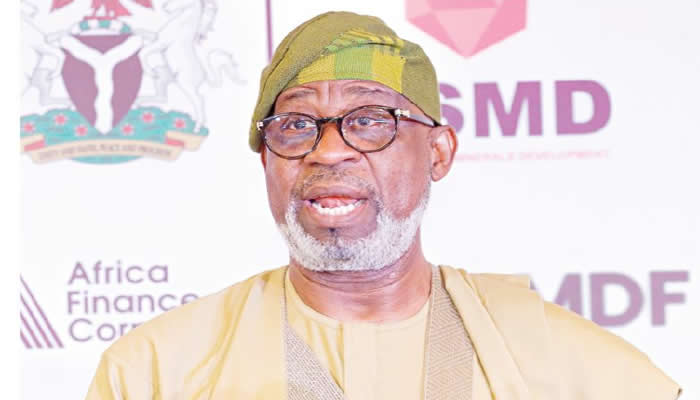Nigeria’s solid minerals sector experienced a significant resurgence in 2024, attracting over $800 million in processing investments, a dramatic increase attributed to the Tinubu administration’s policy reforms. These reforms prioritize in-country value addition and enforce stricter licensing requirements, effectively ending the era of exporting raw minerals without local processing. This strategic shift has stimulated investor confidence and spurred the development of several key projects, including a $600 million lithium processing plant near the Kaduna-Niger border and a $200 million lithium refinery near Abuja, both slated for completion in the near future. Two additional processing facilities in Nasarawa are also expected to commence operations before the end of the third quarter of 2025. This influx of investment underscores the administration’s commitment to transforming Nigeria’s mineral wealth into tangible economic benefits, including job creation, technological advancement, and the growth of domestic manufacturing.
The sector’s revenue performance reflects this positive trajectory. Despite receiving only 18% of its allocated ₦29 billion budget, the ministry generated over ₦38 billion in 2024, a remarkable increase from the ₦6 billion recorded in the previous year. This significant revenue growth demonstrates the effectiveness of the implemented policy framework and highlights the sector’s burgeoning potential. Furthermore, the Mining Cadastral Office and the Mines Inspectorate reported robust revenues of ₦6.9 billion and ₦7 billion respectively in the first quarter of 2025, further substantiating the sector’s upward momentum. This financial success reinforces the government’s commitment to resource optimization and underscores the potential of the solid minerals sector to contribute substantially to national economic growth.
Recognizing the critical role of exploration in attracting investment, the government has allocated ₦1 trillion for mineral exploration in 2025. This investment aims to generate internationally certified geological data, addressing a significant gap in Nigeria’s mining sector. Previously, Nigeria’s exploration expenditure lagged significantly behind other African nations, hindering investor interest. This substantial investment in data acquisition is crucial for attracting serious investors and ensuring the long-term viability and sustainability of the sector. The availability of credible geological data will provide investors with the necessary information to make informed decisions, fostering greater confidence in the sector’s potential.
Beyond attracting investment, the Ministry of Solid Minerals Development has also focused on formalizing the informal mining sector and combating illegal mining activities. Over 300 illegal miners were apprehended in 2024, leading to ongoing prosecutions and several convictions, including foreign nationals. This decisive action demonstrates the government’s commitment to enforcing regulations and ensuring responsible mining practices. Concurrently, the ministry is implementing a strategy to integrate informal miners into the formal economy through the establishment of cooperatives. This initiative aims to empower local communities, provide access to finance, and ensure equitable revenue sharing, fostering sustainable development and inclusivity within the mining sector.
Nigeria is also asserting its leadership role in the African mining landscape. The country now heads the newly established African Mineral Strategy Group, a continental platform dedicated to promoting value addition within Africa and securing more equitable mineral trade agreements. This leadership position underscores Nigeria’s commitment to maximizing the benefits of its mineral resources and advocating for fair trade practices within the continent. The group’s objective is to move away from the traditional model of exporting raw materials and instead prioritize local beneficiation, creating more value-added products and boosting local economies. This initiative aligns with the global trend toward resource nationalism and represents a significant step towards achieving greater economic self-sufficiency for African nations.
International interest in Nigeria’s mineral potential is also on the rise. High-ranking officials from various countries, including the United Kingdom, United States, Saudi Arabia, and the United Arab Emirates, have expressed strong interest in Nigeria’s lithium and other critical resources. This global interest further validates the sector’s potential and underscores the effectiveness of the government’s reforms. The increased attention from international investors and governments signifies a growing recognition of Nigeria’s strategic importance in the global mineral supply chain, particularly for critical minerals like lithium, which are essential for emerging technologies. This influx of interest is expected to further drive investment and accelerate the development of Nigeria’s mining sector.
In conclusion, the Nigerian solid minerals sector has witnessed a dramatic transformation under the Tinubu administration. The combination of policy reforms, increased investment, a focus on data-driven exploration, and a commitment to formalizing the informal mining sector has revitalized the industry. The surge in revenue, the influx of foreign investment, and the strengthening of regulatory frameworks are all positive indicators of the sector’s growth and potential. With a clear roadmap for industrialization, the solid minerals sector is poised to play a pivotal role in Nigeria’s economic diversification strategy, creating jobs, fostering technological advancement, and ensuring that the nation’s mineral wealth benefits its citizens. The recent surge in license applications, exceeding 10,000 in a single quarter, further reinforces the renewed investor confidence and the positive momentum within the sector. This resurgence marks a turning point for the Nigerian mining industry, positioning it as a key driver of economic growth and development.














